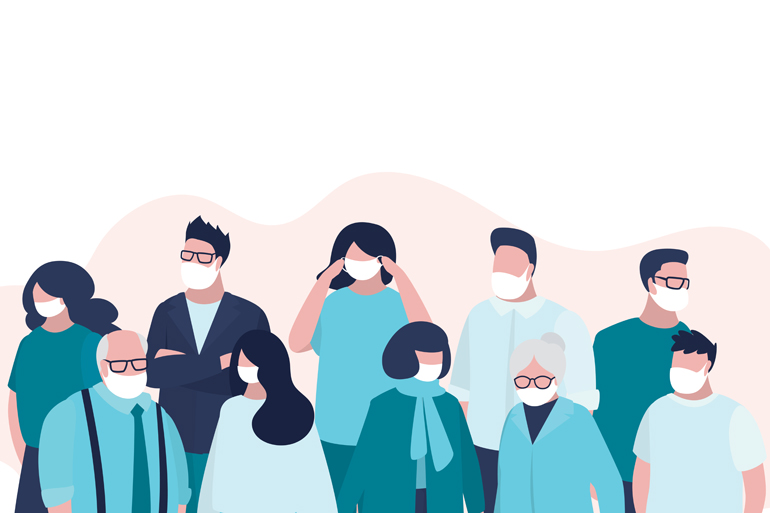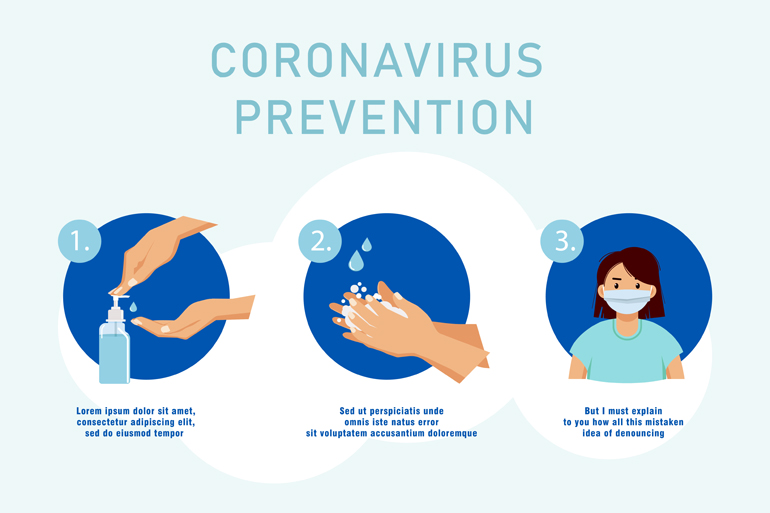
Latest News
- Hyundai E&C Becomes Key Player in the Nuclear Decommissioning Market
- Hyundai E&C Accelerates Global Nuclear Expansion into the U.S. Nuclear Market
- Hyundai E&C Shifts into High Gear to Enter Nordic Large-Scale Nuclear Market
- Hyundai E&C Strengthens Korea-Japan Cooperation in Energy Transition and New Growth Businesses
- Hyundai E&C Signals Green Light for Large-Scale Nuclear Power Plant Business in Europe
Increasing “Collective Immunity” to Prevent Spread of Respiratory Viruses

Most viruses are vulnerable to heat. In particular, winter is referred to as the “virus season.” Humans are quite the opposite. We have hard time enduring the cold, and that is why we do indoor heating. The temperature difference during the winter period is huge, and our body tends to have immunity decrease while adjusting to it. Moreover, dry weather dries respiratory mucosa, making people more vulnerable to virus infiltration. When a virus enters the weakened body, it causes an infectious disease. A common infectious disease is a cold. There are more than 200 types of causal viruses, but the cold virus causes symptoms like cough and runny nose and is not so serious. However, the flu pathogen is caused by the “influenza virus” which is different from that of a cold. Symptoms, although similar to those of a cold, suddenly appear and aggravate to the point of hindering your daily life. Pneumonia maybe caused by bacterial, viral infections or fungi. The most common complication of the flu is also pneumonia. It accompanies both yellow-colored smelly sputum and breathlessness. If symptoms continue, you should suspect pneumonia and see the doctor right away. The problem is that these infectious diseases may spread to other people, and the coronavirus disease or COVIC 19 also infected so many people, having a huge impact. The biggest contributor to addressing such problem is “collective immunity.” Once immunity of the overall community becomes stronger, infectious diseases dwindle. What mankind developed to increase collective immunity was vaccine, which helps to reduce hospitalization and mortality rate. However, more important prevention measure is personal hygiene called “self-vaccine.” Expert groups like the World Health Organization (WHO) and the Korean Society of Infectious Diseases stressed that personal hygiene is most important in preventing COVID19 just as it was the case for SARS and MERS in the past. Therefore, the three best tips for practicing good personal hygiene to increase collective immunity are: “washing hands”, “wearing masks”, and “public manners.”
Prevention Rule No.1: Wash Hands
Pathogens occur once they enter the body through mucosa. Mucous membranes usually exist in the eyes, nose and mouth. However, we tend to unconsciously touch our eyes, nose, and mouth with our hands. Professor Moran Kim from the National Cancer Center explains that “people touch their face more than 20 times in an hour. They need to make efforts to cut back on the habit.” The WHO experts recommend washing hands with soap and running water for at least 30 seconds. A good hand hygiene alone can prevent 70% of infectious diseases. In 2010, the Korea Ministry of Food and Drug Safety announced that handwashing with soap and water for at least 30 seconds would eliminate 99.8% of germs. In everyday life, hands can become dirty because of germs but also many other substances. If you are outside and not in a situation to wash hands, then you can temporarily use hand sanitizers placed inside the stores or other places.
Cotton Masks Also Offer Protection Against Droplets
COVID-19 can spread through droplets that may shoot out when an infected person talks or coughs. One of the most effective ways to prevent this is through personal hygiene, most simply by wearing a mask. Furthermore, if you wear a mask, there is increased humidity around the respiratory system, helping to curb the mucus-drying up pattern. However, these days, it is difficult to find medical-grade masks, and the prices have gone up abnormally. In this situation, experts advise that protection against the cough or sneeze droplets is also possible with non-medical grade masks. You may think that since non-medical masks are less dense than medical ones, viruses may infiltrate through non-medical masks. However, since the amount of infiltrated virus is so little, it is very difficult to cause a viral infection.
Public Manners are Essential
Another way to prevent the spread of infectious disease is through public etiquette. Anyone coughing for any reason is recommended to wear a mask. If you do not have a mask, you should cover your mouth when coughing. As important as covering your mouth is what you do after coughing. If you had covered your mouth and nose with your hand, you should wash your hands with soap and water for at least 30 seconds. If there is no water, you should immediately remove droplets with a hand sanitizer or a wet tissue. If you had covered your nose and mouth with a handkerchief or a tissue, make sure to throw away the tissue and wash the handkerchief well. If you coughed covering your nose and mouth with your sleeve, it is desirable to wash your clothes. If you cannot wash it often because it is an outerwear then, you should at least change your clothes every day. Viruses on your clothes usually disappear after 24 hours.

Ask Anything on Boosting Collective Immunity!
Q. Are soaps in public/outside restrooms dirty?
A. The fact that soaps do not cause a viral infection has been proven many times. In one experiment, participants washed their hands contaminated with 5 billion pathogens including E.coli and staphylococcus. They shared one soap together, and the results found that pathogens do not spread via soap.
Q. Hand sanitizer vs water and soap?
A. Hands contaminated with E.coli were washed with a soap and water, hand sanitizer, wet tissue and running water respectively. Bacteria removal rate was the highest in the soap and water group(86%) followed by hand sanitizer(95%), wet tissue (91%), hand washing in 30 second running water(91%) and 15 second running water(87%).
Q. What is the proper way to wear a mask?
A. Fully cover your nose and mouth with your mask and make sure there is no gap between the mask and your face to be effective. If you leave your nose out and just cover the mouth because you have difficulty breathing, it is no use wearing a mask at all. Once you wear the mask, do not touch the surface of the mask with your hands. You should hold the string when removing the mask, and if you have accidently touched the surface of the mask, please wash your hands for better safety.
Noh Jin-seop, medical journalist

